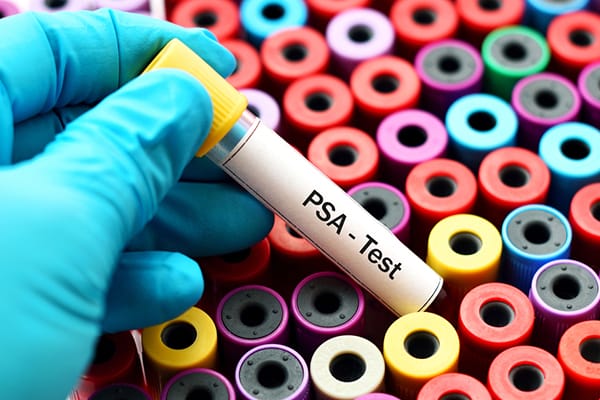The PSA test measures the level of prostate-specific antigen in the blood, which can detect the early signs of an enlarged prostate – and may be a sign of prostate cancer. But it is not foolproof. An enlarged prostate, prostate infection, urinary tract infection, medications, and several other factors can produce an elevated PSA.
Urologist Carl Meyer, MD, a board-certified Urologist with The Iowa Clinic Men's Center says, “The PSA test is not a bad test. However, it's just one piece of information. You can't base your decision to do a biopsy on one piece of information.”
“However, the PSA in combination with a digital rectal exam are the best ways to detect prostate cancer. The PSA test is used when men are concerned about prostate cancer or when other risk factors are present,” he says.
According to Meyer, men's chances of getting prostate cancer increase when they have the following risk factors:
- Increasing age: Although prostate cancer is rare in men under the age of 40, the risk of having the disease increases rapidly after age 50.
- Urinary symptoms: Weakening of the stream, an urgent need to urinate, and frequent urination can increase a man's risk for prostate cancer.
- Family history: If you have a father, brother, or son who has had prostate cancer, you are more than twice as likely to develop the disease yourself.
- Race/ethnicity: Any man can develop prostate cancer, but it is more common in African-American men and Caribbean men of African ancestry. Asian-American and Hispanic/Latino men are less likely to develop the disease than are non-Hispanic whites.
If you are concerned about your prostate health The Iowa Clinic Men's Center is comprised of a team focused on the unique health needs of men.
To make an appointment, visit The Iowa Clinic Men's Center or call 515.875.9801.


